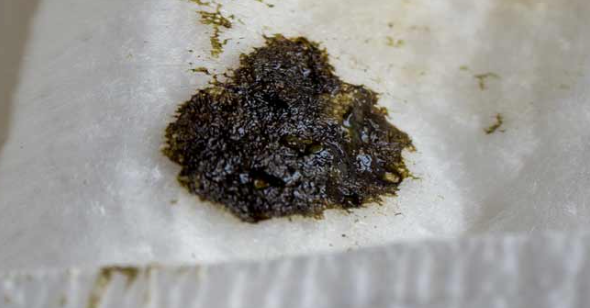A brief guide to meconium – making informed choices from love
Childbirth is a powerful and transformative journey that women embark on to bring new life into the world. Throughout history, childbirth has been surrounded by myths and misconceptions, leading some to believe that certain aspects should be left solely to the “hand maidens” of the medical system. One such aspect is meconium staining, the presence of the baby’s first stool in the amniotic fluid during labour. In this blog, we will embrace meconium in childbirth from an empowering spiritual standpoint, dispelling fears, and shedding light on the reality of this natural occurrence. Let’s explore NICE guidelines and care during labour, statistics on Meconium Aspiration Syndrome (MAS), the degree of meconium staining, and reasons for its presence in full-term pregnancies while also understanding the profound impact of our energy on the birth experience.
Embracing Empowered Choices with Love:
As mothers-to-be, it’s crucial to recognise that our energy and emotions play a significant role in the birthing process. Fear and anxiety can affect the course of labour and the well-being of our baby. By approaching childbirth from a place of love and empowerment, we can create a positive and nurturing environment for ourselves and our little one. Knowledge is key, and by being informed about various aspects of labor, including meconium staining, we can confidently make choices based on love, not fear. The medical system is there to provide support and expertise, but ultimately, we hold the reins of responsibility and authority in our own hands, guided by our intuition and the loving connection with our unborn child.
NICE Guidelines and Empowered Care:
While medical guidelines are valuable, they should not overshadow our spiritual understanding of childbirth. When we approach labour with love and trust in the natural process, we open ourselves to a deeper connection with our intuition and the wisdom of our bodies. Engaging in informed discussions with healthcare professionals becomes a harmonious collaboration, where our spiritual empowerment aligns with their expertise. This mutual respect and understanding allow us to make choices that resonate with our unique circumstances and preferences, enhancing the birthing experience for both mother and baby.
Meconium Aspiration Syndrome (MAS) Statistics:
Understanding the prevalence of Meconium Aspiration Syndrome (MAS) is essential, but we should also remember that fear of this rare occurrence should not overshadow the miraculous and spiritual journey of childbirth. MAS affects approximately two in 1000 births, making it uncommon, and being aware of the statistics can help alleviate unwarranted worries. However, by nurturing a loving and positive energy during labor, we can further reduce the chances of complications and create a peaceful and harmonious environment for our baby’s entry into the world.
Reasons for Meconium:
As we explore the spiritual aspect of childbirth, we understand that our emotional state can influence the physiological responses during labour. Fear and stress can trigger the release of hormones that affect both the mother’s body and the baby’s well-being. The loving energy we emit can have a calming and positive effect on the birthing process, encouraging the baby’s journey into the world to be met with serenity and joy. By embracing love and releasing fear, we can reduce the likelihood of complications, including the presence of meconium in the amniotic fluid.
During labour, compression of the baby’s head or cord can trigger a normal physiological response known as reflex gastro-intestinal peristalsis, leading to meconium passage, even in the absence of fetal hypoxia.
Fetal hypoxia, characterised by a reduced oxygen supply to the baby, remains a mysterious condition with unclear causative factors. Some theories suggest that in a hypoxic or compromised fetus, blood is redirected to the brain and heart, causing gut ischaemia and an increase in gastro-intestinal peristalsis.
Degree of Meconium Staining: A Spectrum of Normalcy:
Meconium staining varies in intensity, ranging from light to thick. While dark staining can be a cause for concern when accompanied by an abnormal heart rate, light meconium staining in full-term pregnancies is often a variant of normal. It is crucial to recognise that meconium itself is not inherently problematic, and it should not overshadow the overall health and well-being of the baby.
Conclusion: Taking Charge of Our Childbirth Journey
As women preparing to give birth, let us embrace meconium staining in childbirth with an empowering stance. Let’s recognise that we have the ability to make informed decisions, drawing upon our inner strength and the expertise of healthcare professionals. NICE guidelines serve as valuable references, but they should not eclipse our role in the decision-making process. Meconium staining is a natural aspect of childbirth, and understanding the statistics and reasons behind it can dispel unwarranted fears. By taking charge of our childbirth journey, we can celebrate the miraculous process of bringing life into the world with confidence, knowledge, and empowerment.
If you want to empower other women and become certified as a traditional birth attendant, you can join the childbirth revolution today! Click here to learn more
I highly recommend the following article to learn more about meconium during childbirth!





